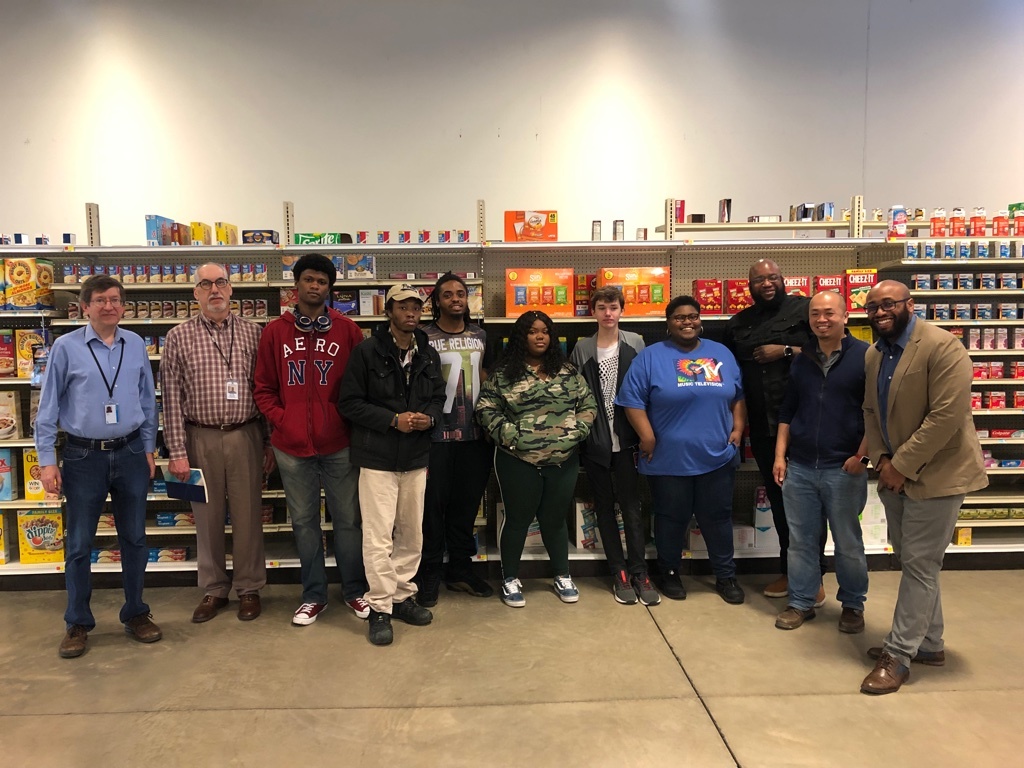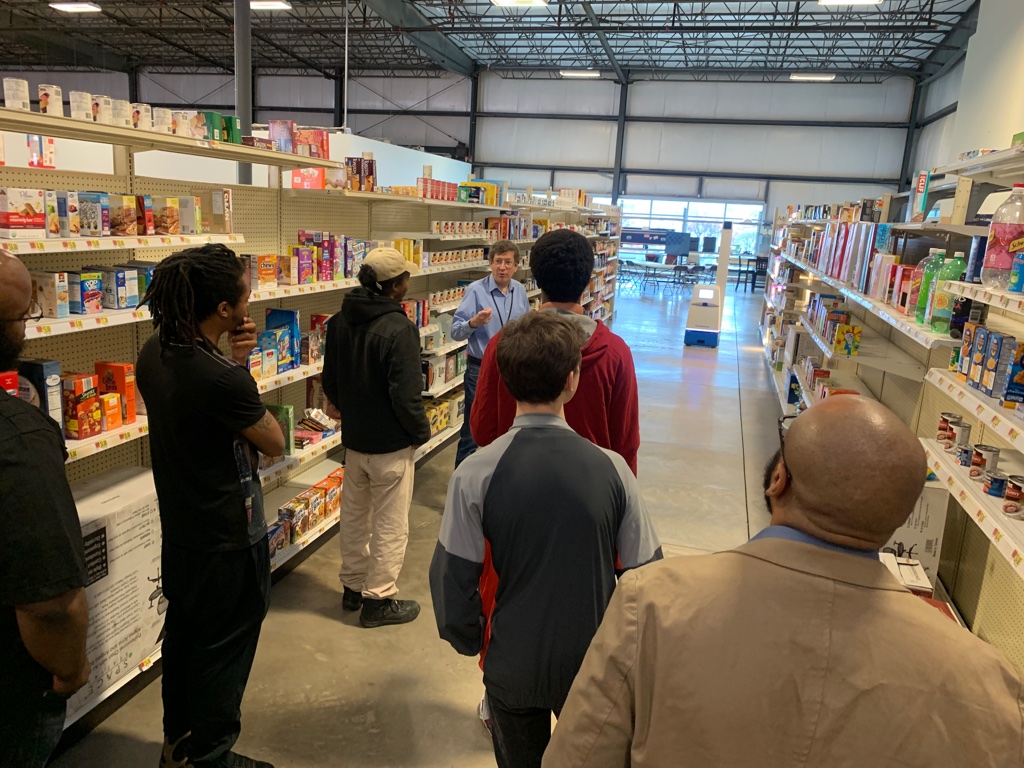
Bossa Nova demonstrates shelf scanning robot to local Pittsburgh students
Bossa Nova Robotics, a robotics company that creates autonomous service robots for the global retail industry, hosted students from the Garfield Jubilee, Phase 4 Learning Center, and Auberle to learn about what their team needs to do every day to maintain their sizeable fleet. Their team of robotics technicians and engineers spend their days ensuring that robots across the US are able to effectively navigate the aisles of big retail stores like Walmart to keep an inventory of products that are on their shelves. Utilizing several cameras, the robot glides across the aisles, carefully documenting each and every product to ensure proper placement and availability.
Regis Hoffman of Bossa Nova Robotics says, "Not only do the robots have to keep track of inventory, but they also have to account for children, mop buckets, spilled items, or hundreds of other variables.” Hoffman says that a lot of what his job entails is to come up with experiments, “I get to come up with scenarios that could cause problems for the robot. This could be anything from an item being out of place, or something as simple as the length of the hangers from the walls that could confuse the robot.”
Bossa Nova’s team members come from all types of backgrounds: from technical schools to universities, with specialties ranging from mechanics to mathematics. During their visit, students learned about two common technician positions at Bossa Nova: technicians that provide regular maintenance to the robots, as well as specialized technicians for in-depth repair jobs of severe issues. While these positions are technical in nature, gaining these positions do not require a four-year degree.
This Bossa Nova site visit, as well as many others, are all part of the SMART-Extended Reach (SMART-ER) project, which has students go through a Micro-Certification course called Electrical Foundations. This project is funded by ARM, the Department of Labor through Partner4Work, and the Grable Foundation. To learn more about SMART-ER you can go to our Research area. You can also learn about the parent project, SMART. You can also email us at cmra@nrec.ri.cmu.edu for more information about either of these projects.
